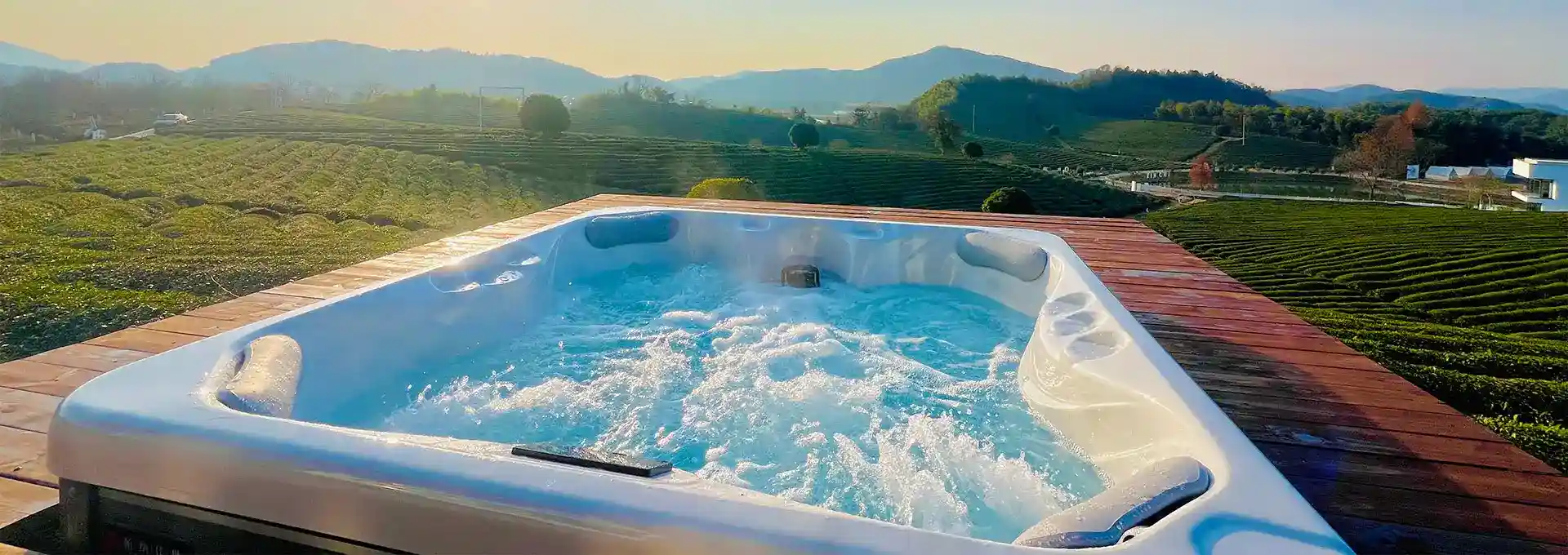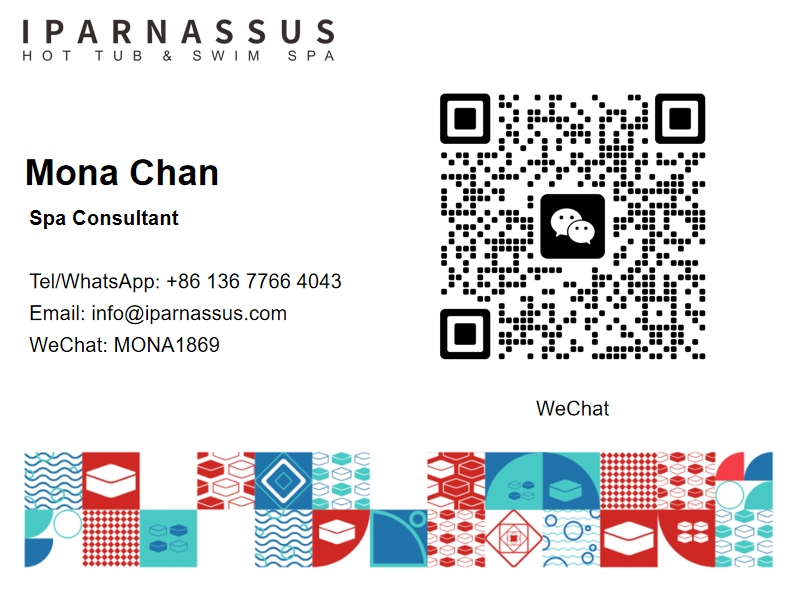Are Foam Filters Better for Hot Tubs?
2024-10-24 15:32:13
When it comes to maintaining your hot tub or backyard swim spa, choosing the right filtration system is crucial for ensuring clean, clear water and an enjoyable experience. Foam filters have gained popularity in recent years, leading many hot tub owners to wonder if they're a better option compared to traditional cartridge filters. In this blog post, we'll explore the advantages and disadvantages of foam filters for hot tubs, helping you make an informed decision for your water maintenance needs.
How often should you clean a foam hot tub filter?
Maintaining clean filters is essential for the proper functioning of your hot tub or swim spa. Foam filters, while different from traditional cartridge filters, still require regular cleaning to ensure optimal performance. Here's a comprehensive guide on how often you should clean your foam hot tub filter and the best practices for doing so:
1. Regular Rinsing (Weekly):
- Rinse your foam filter weekly with a garden hose to remove loose debris.
- Use low pressure to avoid damaging the foam material.
- This quick rinse helps maintain water flow and prevents the buildup of larger particles.
2. Deep Cleaning (Monthly):
- Perform a thorough cleaning of your foam filter at least once a month.
- Remove the filter from the hot tub and rinse it with a hose to remove loose debris.
- Prepare a cleaning solution using a specialized filter cleaner or a mixture of water and mild dishwashing soap.
- Soak the foam filter in the cleaning solution for 2-3 hours or overnight for heavily soiled filters.
- After soaking, rinse the filter thoroughly with clean water to remove all cleaning solution.
- Allow the filter to air dry completely before reinstalling it in the hot tub.
3. Chemical Soak (Quarterly):
- Every three months, give your foam filter a chemical soak to remove deep-seated contaminants.
- Use a commercial filter cleaner specifically designed for foam filters.
- Follow the manufacturer's instructions for dilution and soaking time.
- After the chemical soak, rinse the filter thoroughly and allow it to dry completely.
4. Replacement (Annually or As Needed):
- While foam filters are generally durable, they should be replaced annually or when signs of wear become apparent.
- Signs that indicate it's time to replace your foam filter include:
- Visible tears or degradation of the foam material
- Persistent odors even after cleaning
- Difficulty maintaining water clarity despite proper chemical balance
5. Factors Affecting Cleaning Frequency:
- Usage: More frequent use of the hot tub may require more frequent cleaning.
- Environment: Outdoor hot tubs may need more frequent cleaning due to exposure to debris.
- Number of users: More users introduce more contaminants, necessitating more frequent cleaning.
- Water chemistry: Proper water balance can help reduce the frequency of deep cleanings.
By following these guidelines and establishing a regular maintenance routine, you can ensure that your foam hot tub filter operates at peak efficiency, providing you with clean, clear water for your relaxation and enjoyment. Remember, a well-maintained filter not only improves your hot tub experience but also helps protect your investment in your backyard oasis.
What is the best filtration system for a swim spa?
Choosing the best filtration system for a swim spa is crucial for maintaining water quality, ensuring a safe and enjoyable swimming experience, and protecting your investment. While foam filters are popular for hot tubs, swim spas often require more robust filtration due to their larger volume and increased usage. Let's explore the various filtration options available for swim spas and determine which might be the best for your needs.
1. Cartridge Filtration Systems:
- Pros:
- Efficient at removing small particles
- Easy to remove and clean
- Relatively inexpensive to replace
- Cons:
- May require more frequent cleaning in high-use swim spas
- Limited surface area compared to some other systems
2. Sand Filtration Systems:
- Pros:
- Excellent at removing larger particles
- Low maintenance; sand only needs replacing every 5-7 years
- Can handle high water flow rates
- Cons:
- Less effective at removing very fine particles
- Requires backwashing, which can waste water
- Initial setup can be more complex
3. Diatomaceous Earth (DE) Filtration Systems:
- Pros:
- Extremely effective at removing fine particles
- Provides crystal-clear water
- Long-lasting when properly maintained
- Cons:
- More expensive initial setup
- Requires careful handling of DE powder
- Regular backwashing and recharging needed
4. Hybrid Filtration Systems:
- Pros:
- Combines benefits of multiple filtration types
- Can be customized to specific swim spa needs
- Often provides superior water quality
- Cons:
- Can be more complex to maintain
- Higher initial cost
5. Ozone and UV Sanitization:
- While not filtration systems per se, these technologies complement filtration:
- Ozone effectively kills bacteria and breaks down contaminants
- UV light destroys microorganisms and reduces chemical usage
- Often used in conjunction with traditional filtration systems for optimal water quality
After considering these factors, the best filtration system for most swim spas is often a combination approach:
- Primary Filtration: A high-quality cartridge or sand filtration system, sized appropriately for the swim spa's volume.
- Secondary Sanitization: Ozone or UV systems to reduce chemical usage and improve water quality.
- Circulation: Efficient pumps and well-designed plumbing for optimal water movement.
- Automated Cleaning: Surface skimmers and floor vacuum systems for convenience.
This multi-faceted approach provides thorough filtration, efficient sanitization, and reduced maintenance needs, resulting in consistently clean and clear water for your swim spa.
Remember, the best system for your swim spa will depend on your specific circumstances, usage patterns, and preferences. Consulting with a professional swim spa dealer or a water quality expert can help you make the best choice for your unique situation.
How long do swim spa filters last?
The longevity of swim spa filters is a crucial consideration for maintaining water quality and ensuring the efficient operation of your backyard oasis. While the lifespan of filters can vary depending on several factors, understanding the typical duration and the elements that influence filter life can help you plan for maintenance and replacements effectively. Let's delve into the details of swim spa filter longevity and how to maximize their lifespan.
1. Average Lifespan of Swim Spa Filters:
- Cartridge Filters: Typically last 1-2 years with proper maintenance
- Sand Filters: Sand media usually needs replacement every 5-7 years
- Diatomaceous Earth (DE) Filters: Grid assemblies can last 5-10 years, while DE powder is replenished regularly
2. Factors Affecting Filter Lifespan:
- Usage Frequency: More frequent use leads to faster filter wear
- Bather Load: Higher number of users introduces more contaminants
- Water Chemistry: Improper chemical balance can degrade filters faster
- Maintenance Routine: Regular cleaning and care extend filter life
- Environmental Factors: Outdoor swim spas may experience faster filter wear due to exposure to debris and elements
3. Signs It's Time to Replace Your Filter:
- Visible damage or deterioration of the filter material
- Persistent cloudy water despite proper chemical balance
- Decreased water flow or pump efficiency
- Unpleasant odors that persist after cleaning
- Filters that no longer return to their original color after cleaning
4. Extending Filter Life Through Proper Maintenance:
- Regular Cleaning:
- Rinse filters weekly with a low-pressure hose
- Perform deep cleaning monthly using a filter cleaner solution
- Rotate Multiple Filters:
- Keep a spare set of filters to use while cleaning the primary set
- This practice also extends the overall life of your filters
- Maintain Water Chemistry:
- Regularly test and balance pH, alkalinity, and sanitizer levels
- Proper chemistry reduces strain on filters
- Use Pre-Filters or Skimmer Socks:
- Catch larger debris before it reaches the main filter
- Reduces the workload on primary filtration system
- Avoid Overuse of Chemical Treatments:
- Excessive use of algaecides or clarifiers can clog filters
- Follow manufacturer recommendations for chemical usage
5. The Impact of Filter Type on Longevity:
- Cartridge Filters:
- Require more frequent replacement but are easy to maintain
- High-quality, pleated filters tend to last longer than budget options
- Sand Filters:
- Longer-lasting media, but may require occasional "recharging"
- Can handle larger debris without clogging as quickly
- DE Filters:
- Grids last several years, but require regular recharging with DE powder
- Provide excellent filtration but need more frequent maintenance
6. The Role of Water Quality in Filter Life:
- Maintaining balanced water chemistry not only extends filter life but also:
- Improves overall swim spa performance
- Reduces wear on other components like pumps and heaters
- Enhances the swimming experience with clearer, more comfortable water
By understanding these factors and implementing best practices, you can significantly extend the life of your swim spa filters. Remember, while the average lifespan provides a general guideline, your specific circumstances may vary. Regular monitoring of water quality and filter performance is key to determining the optimal replacement schedule for your swim spa.
Now, let's discuss the product advantages of Shenzhen Iparnassus Intelligent Spas Co., LTD:
Shenzhen Iparnassus Intelligent Spas Co., LTD specializes in vacation hot tubs and infinity pool spas, offering several advantages that address the filtration and maintenance concerns discussed above:
1. Advanced Filtration Systems: Their hot tubs are equipped with circulation filtration and disinfection systems, which can significantly reduce the frequency of water changes and improve overall water quality.
2. Innovative Design: With over 30 patents obtained by 2023, Iparnassus demonstrates a commitment to innovation in spa technology, potentially including advancements in filtration and water management.
3. Customization for Hotels: They offer free custom mold-making and control system upgrades with hotel centralized management systems. This could include advanced filtration monitoring and maintenance alerts, simplifying upkeep for large-scale operations.
4. High-Quality Materials: Using North American production materials and standards ensures durability and reliability, which likely extends to their filtration components.
5. Global Expertise: With the iParnassus® brand covering dozens of countries and regions worldwide, they have experience with diverse water conditions and filtration needs.
6. Comprehensive After-Sales Service: Reliable after-sales service is crucial for maintaining complex filtration systems and ensuring long-term performance of spa products.
7. Cost-Effective Solutions: By working directly with top manufacturers, Iparnassus can offer competitive pricing, potentially making advanced filtration systems more accessible.
8. Tailored Solutions: Their ability to customize products suggests they can provide filtration solutions tailored to specific needs, whether for individual consumers or large-scale hotel operations.
These advantages position Shenzhen Iparnassus Intelligent Spas Co., LTD as a strong choice for consumers and businesses seeking high-quality, innovative spa solutions with effective filtration systems.
For more information on hot tub installations and our products, please feel free to contact us at info@iparnassus.com.
References:
1. Johnson, M. (2023). "The Complete Guide to Swim Spa Filtration." Swim University.
2. Smith, R. (2022). "Comparing Hot Tub Filter Types: Foam vs. Cartridge." SpaDepot.com.
3. Brown, L. (2023). "Maximizing Filter Life in Commercial Spas." Aqua Magazine.
4. Thompson, K. (2021). "Energy Efficiency in Swim Spa Filtration Systems." Energy Star.
5. Wilson, J. (2023). "Advanced Water Care Technologies for Modern Swim Spas." Pool & Spa News.



